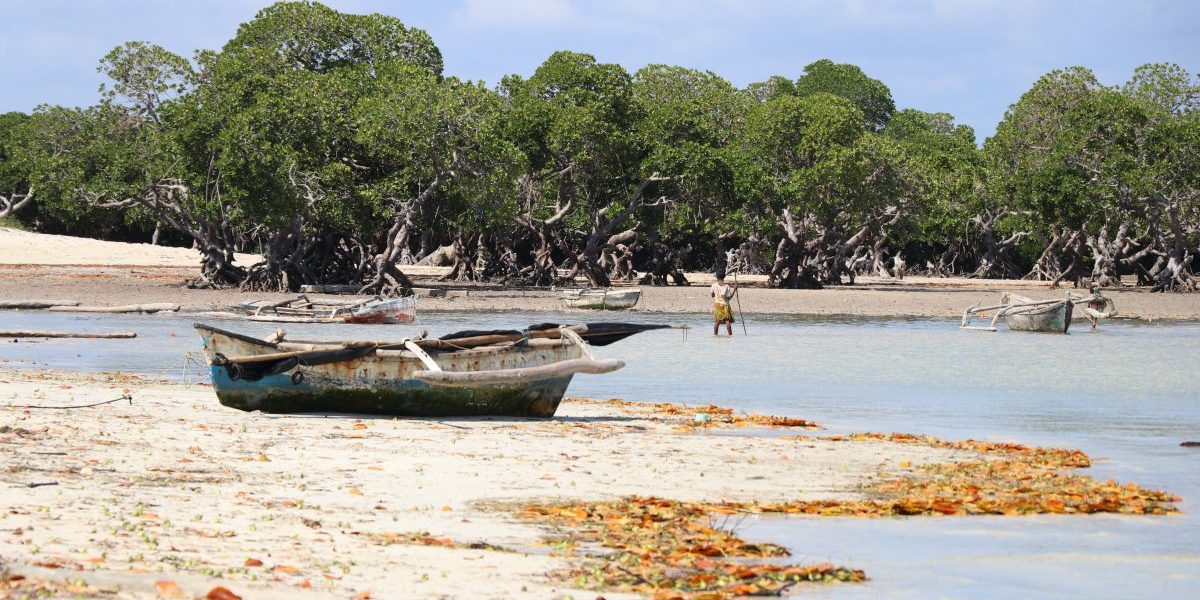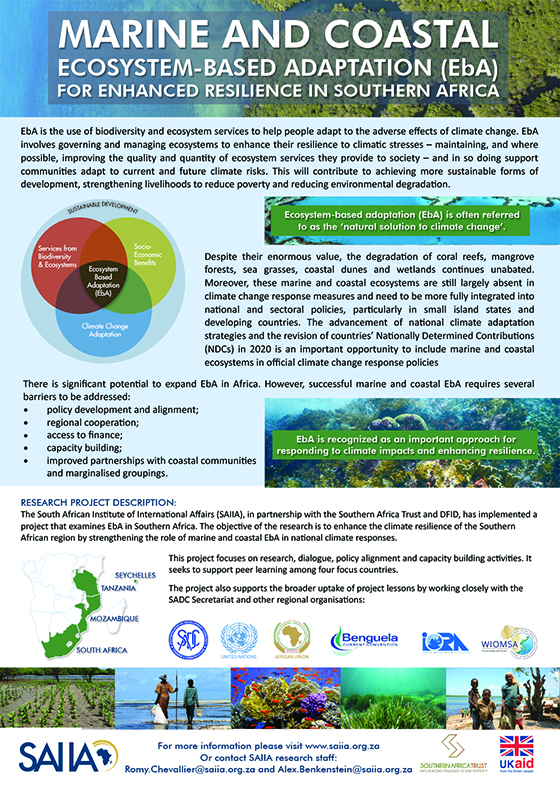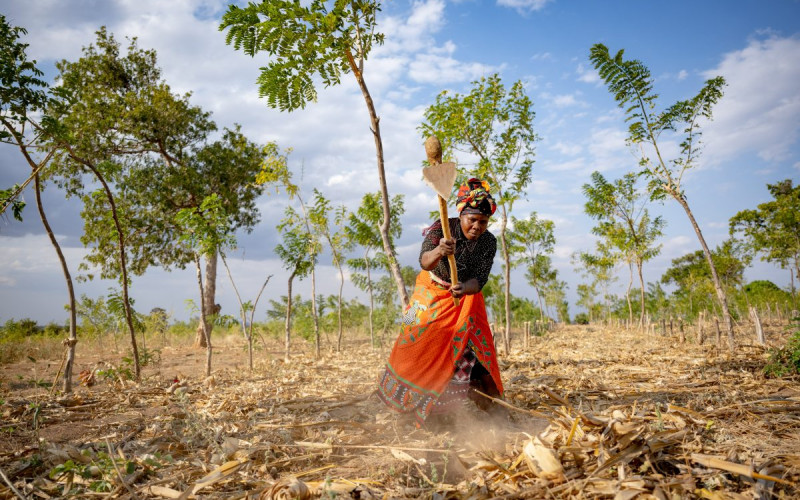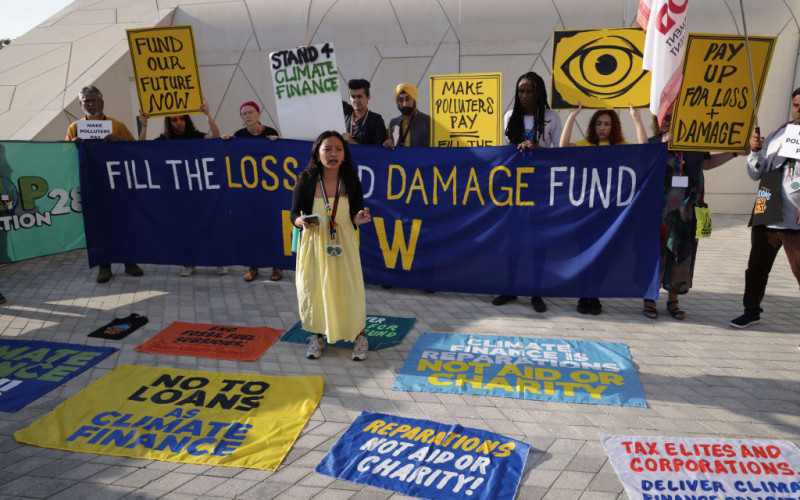Key Recommendations
- Improve understanding of the role and value of marine and coastal EbA in enhancing climate resilience among regional institutions and national policy audiences.
- Provide a stronger evidence base to support the inclusion of marine and coastal EbA in national climate policies and strategies.
- Fully integrate EbA into national and sectoral policies, as well as budgetary and regulatory frameworks of climate change response measures.
- Enhance the emphasis on marine and coastal EbA in NDCs as updated by the 2020 deadline specified by the UNFCCC.
- Strengthen knowledge of and action within the policy community and private sector around opportunities for innovative financing and investment to support marine and coastal EbA.
- Enhance stakeholder partnerships throughout the lifecycle of EbA projects.
- Learn from existing projects and share best practices.
- Equip community-based organisations with the skills and information to actively participate in EbA policy and project design and implementation.
To download this report, please click on the download button in the sidebar. The report findings have been summarised in a linked policy briefing, which can be viewed here.








